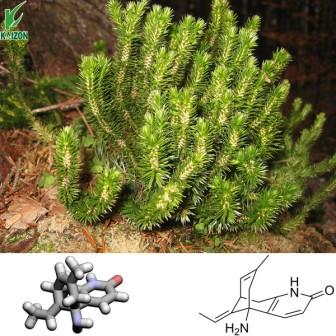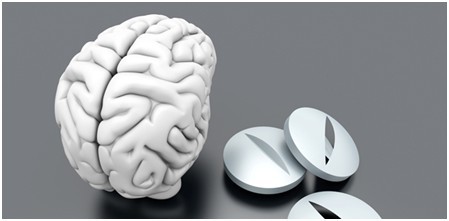
Share to:
- Quality and stability: the whole process of quality control, ...
- Reasonable price: high internal cost control, reduced ...
- Fast Delivery: advanced production lines, adequate ...
- Sales:
- 0086-21-67602359-8010
- Fax:
- 0086-21-67602387
- Email:
- fuyun_123@hnkeyuan.com
| Product name | Huperzia serrata.P.E. Huperzine A |
| Botanical Name | Huperzia serrata. |
| Active ingredients | Huperzine A |
| Synonyms | HupA, Huperzina A, Huperzine, Huperzine-A, Selagine, Sélagine |
| Appearance | Off white to white fine powder |
| Part used | Whole Plant |
| Specification | 40% 50% 99% HPLC |
| Dosage | 200-400 mcg daily for best results with meals |
| Main benefits | Nootropic, memory enhancer, treat Alzheimer's disease |
| Applied industries | Dietary supplement for memory support; Medical Industries |
What is Huperzine A?
Huperzine A is a naturally occurring sesquiterpene alkaloid compound purified from a plant called Chinese club moss (Huperzia serrata.), a plant native to China. As an acetylcholinesterase inhibitor, it is under development as a memory enhancer because it acts as a cholinesterase inhibitor, meaning that it has similar effects on neurotransmitters as some FDA-approved drugs for the treatment of Alzheimer's disease.
In traditional Chinese medicine, Chinese club moss has long been used to reduce inflammation and to sharpen memory. More recently in China, this herb (called Qian Ceng Ta) has been used to treat schizophrenia, organophosphate poisoning (from some insecticides and herbicides), and myasthenia gravis, an autoimmune disease marked by muscle weakness and fatigue that worsens during activity and improves with rest.
Huperzine A Nootropic

Extensive research has revealed the biological mechanism of Huperzine A, most notably its inhibition of acetylcholinesterase and secondary neuroprotective effects. Preclinical studies in animals provide evidence of increased Ach neurotransmitter concentration in cognitively important brain regions along with learning and memory improvements. These preclinical studies and the historical use of Huperzine A as a memory supplement led researchers to investigate the possible benefits in cognitive disorders. Double-blinded, placebo controlled studies have shown that Alzheimer’s and vascular dementia patients exhibit significant improvements in memory function after Huperzine A treatment. The low incidence of adverse side effects supports the safe use of huperzine A as a nootropic supplement to support memory and neurological health.
How Huperzine A Works
Huperzine A is thought to be beneficial for problems with memory, loss of mental abilities (dementia), and the muscular disorder myasthenia gravis because it causes an increase in the levels of acetylcholine. Acetylcholine is one of the chemicals that our nerves use to communicate in the brain, muscles, and other areas.
Health Benefits of taking Huperzine A
While research on the health effects of huperzine A is fairly limited, there's some evidence that huperzine A may offer certain benefits. Here's a look at some key findings from the available research:
Huperzine A for Alzheimer's disease
Alzheimer's disease has become a major public health problem around the world due to its increasing prevalence, long duration, caregiver burden, and high financial cost of care. The degeneration of acetylcholine-containing neurons in the basal forebrain has been implicated in the symptoms of AD. Cholinesterase inhibitors could block the degradation of acetylcholine, thus increasing the efficacy of the remaining cholinergic neurons. Huperzine A is a linearly competitive, reversible inhibitor of acetyl cholinesterase that is said to have both central and peripheral activity with the ability to protect cells against hydrogen peroxide, beta-amyloid protein (or peptide), glutamate, ischemia and staurosporine-induced cytotoxicity and apoptosis. These properties qualify Huperzine A as a promising agent for treating Alzheimer's disease.
Huperzine A for Enhancing Memory
Very few studies have tested the use of huperzine A for memory enhancement. However, an older, small study published in the Chinese journal Acta Pharmacologica Sinica in 1999 found that huperzine A helped improve memory and learning in a group of adolescent students.
For the study, 68 junior high students (all of whom complained of memory inadequacy) were given either huperzine A or a placebo every day for four weeks. By the study's end, members of the huperzine A group showed greater improvements in learning and memory (compared to members of the placebo group).
Huperzine A Dosage
Take 200-400 mcg daily for best results with meals.
Huperzine A Side Effects
To date, little is known about the safety of taking huperzine A in the long term.
However, there's some concern that use of huperzine A may be harmful to people with certain health conditions (including kidney and/or liver disorders, heart disease, asthma, and vertigo) or people using certain medications (such as other cholinesterase inhibitors, beta-blockers, and anti-convulsive agents). Given these safety concerns, it's important to consult your physician if you're considering the use of huperzine A. Additionally, huperzine A may cause a number of side effects (including diarrhea, dizziness, and cramps).

